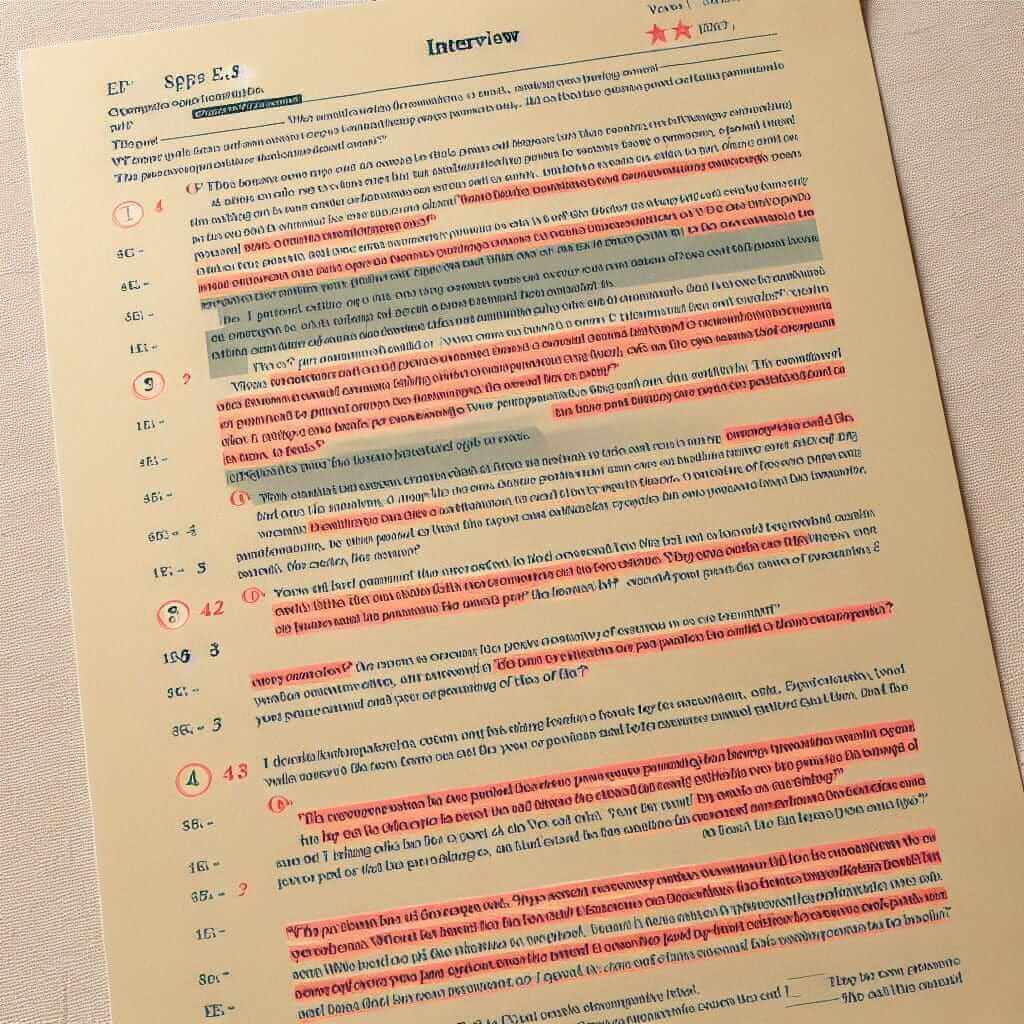As an IELTS instructor with over 20 years of experience, I often encounter students who feel intimidated by the IELTS Reading section, particularly when it comes to interview-based passages. The truth is, mastering this question type is very achievable with the right approach. This guide will equip you with effective strategies and insights to confidently tackle interview-based reading passages in your IELTS exam.
Understanding Interview-Based Reading Passages
In the IELTS Reading section, you may encounter passages structured as interviews. These passages typically involve a conversation between two or more individuals, often in a question-and-answer format. Understanding the dynamics of an interview, recognizing the interviewer’s questions, and identifying the interviewee’s responses are crucial to answering the subsequent questions accurately.
Effective Strategies for Tackling Interview Passages
Here’s a breakdown of how to approach interview-based passages effectively:
1. Preview the Questions
Before diving into the passage, take a moment to skim through the questions related to it. This will give you a sense of what information to look for while reading, allowing you to read with a purpose.
2. Skim the Passage
Quickly read through the passage, paying attention to headings, subheadings, and the overall flow of the interview. This will help you grasp the context and the main points being discussed.
3. Identify Key Information
As you skim, make a note of keywords and phrases related to the questions you previewed. This could include names, dates, opinions, or specific examples mentioned in the interview.
4. Read Carefully and Locate Answers
Now, read the passage more carefully, focusing on the sections where you expect to find the answers to the questions. Pay attention to:
- Interviewer’s Questions: These often signal the topic and scope of the interviewee’s response.
- Interviewee’s Responses: These provide the details and insights you’ll need to answer the questions. Look for direct quotes, paraphrases, or summaries of their views.
5. Practice Paraphrasing
IELTS Reading often tests your ability to understand and interpret information, not just locate it verbatim. As you find potential answers, practice paraphrasing them in your own words. This skill is particularly important for question types like ‘matching headings’ or ‘summary completion’.
Illustrative Example from an IELTS Reading Passage
Let’s look at a brief example. Imagine an interview passage about an archaeologist discussing a recent discovery. A question might be:
- What surprised the archaeologist most about the findings at the dig site?
During your careful reading, you spot this sentence: “The most astonishing thing was uncovering pottery from a civilization we didn’t even know existed in this region.” This directly answers the question and highlights the archaeologist’s surprise at the pottery and its connection to a previously unknown civilization.

Essential Tips for Success
- Manage Your Time Wisely: Allocate your time effectively for each passage in the IELTS Reading section. Don’t spend too long on a single question.
- Improve Your Vocabulary: A strong vocabulary is essential for understanding complex texts and the nuances of interview responses. Make a habit of learning new words regularly.
- Practice Active Reading: Engage with the text actively by highlighting key points, underlining important phrases, and taking notes.
- Utilize Practice Tests: Familiarize yourself with the format and difficulty level of the IELTS Reading section by practicing with authentic IELTS practice tests.
Conclusion
Remember, success in the IELTS Reading section, especially with interview-based passages, boils down to focused practice and a strategic approach. By implementing the techniques outlined in this guide, you’ll enhance your comprehension skills and boost your confidence in tackling any interview passage that comes your way. Good luck!